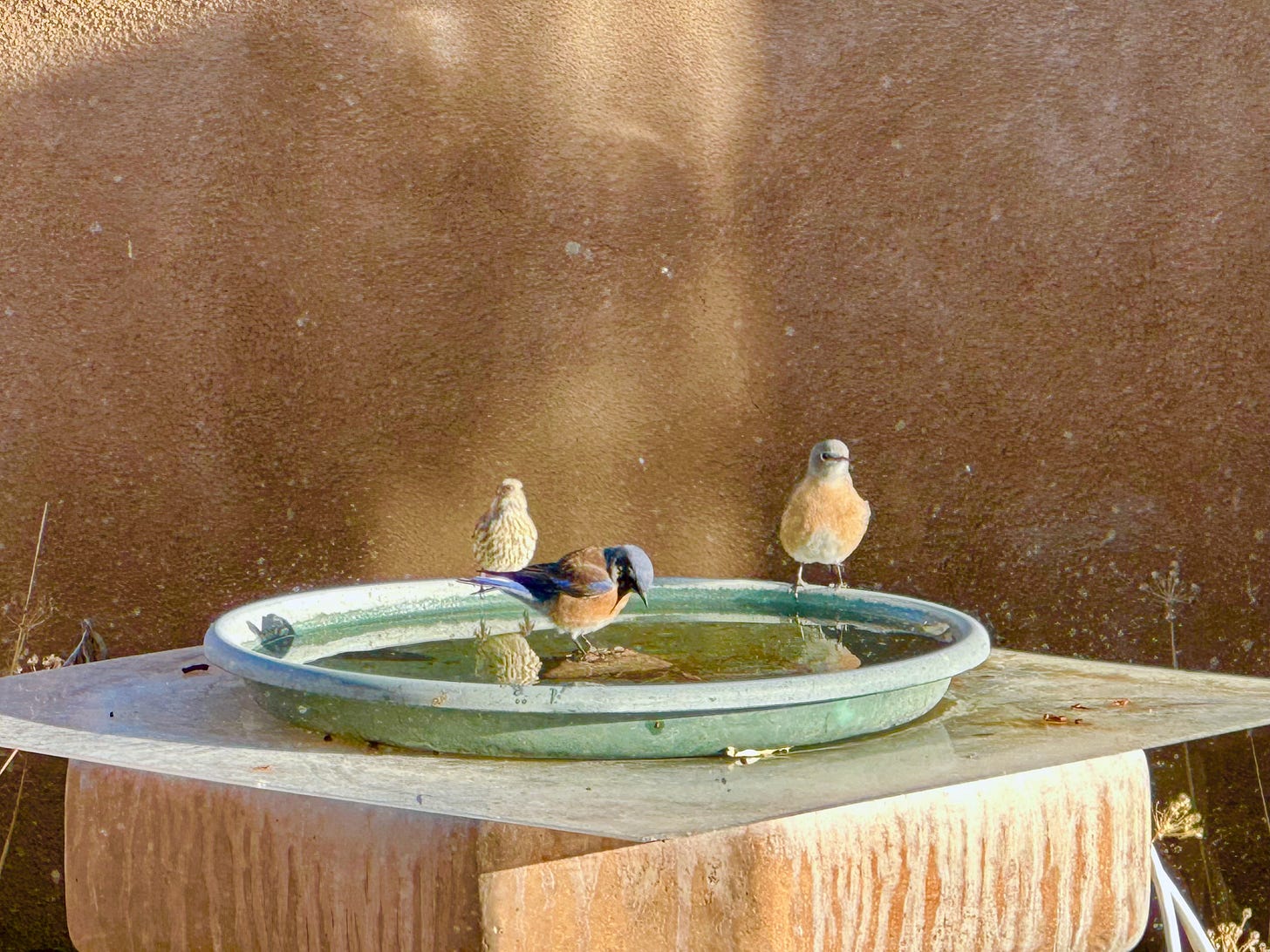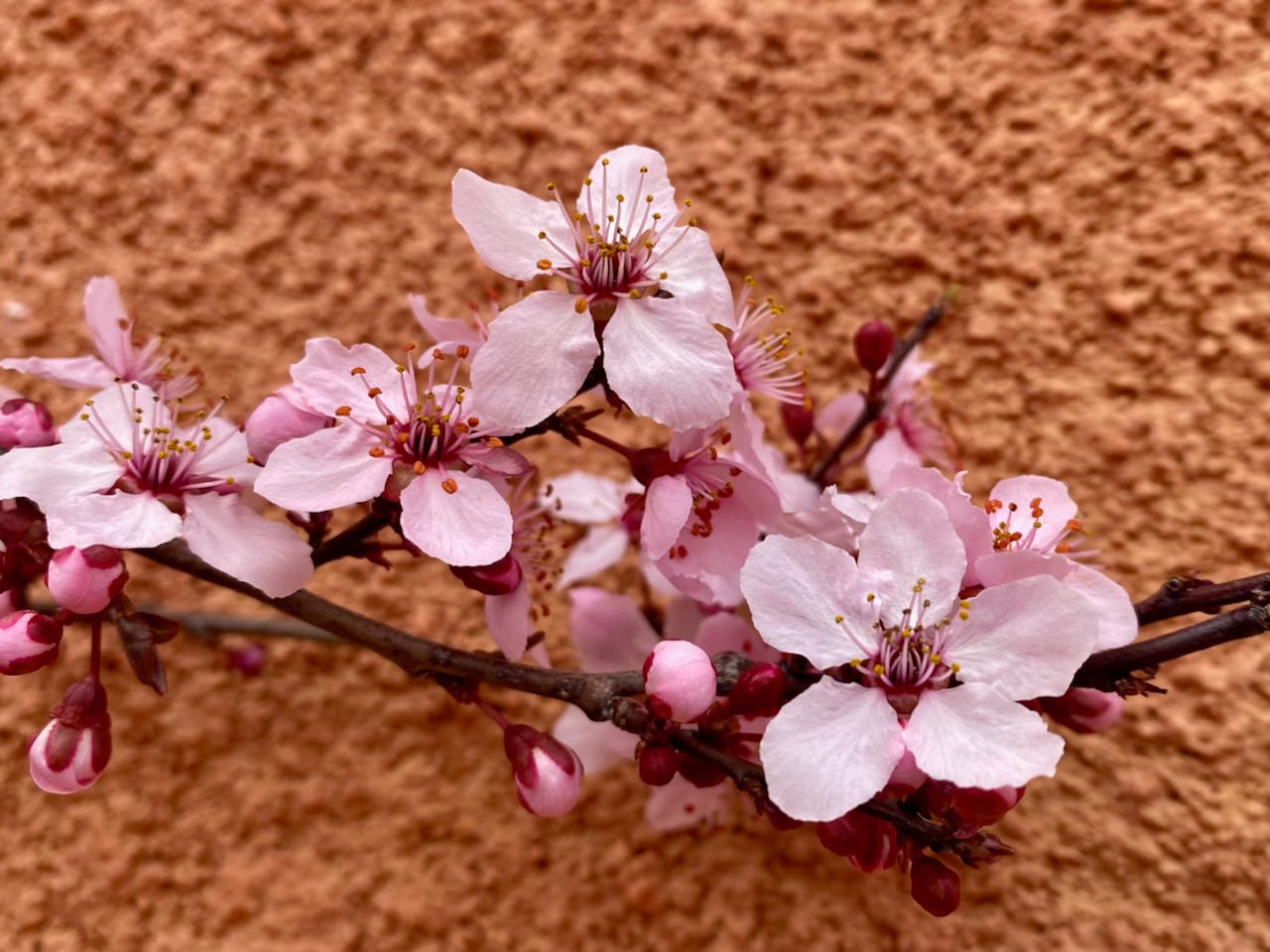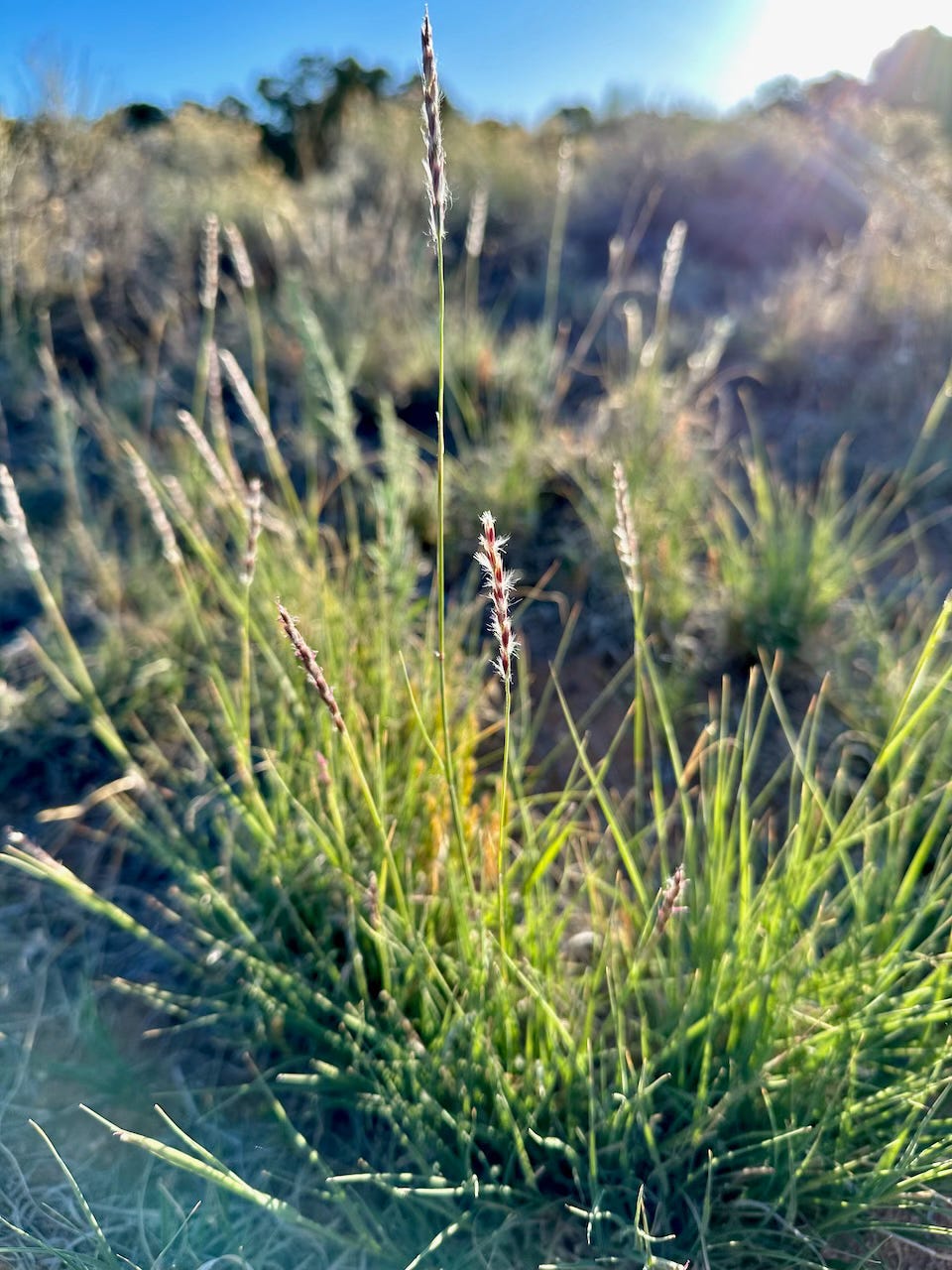terraphilia n. An intrinsic affection for and connection to the earth and its community of lives. Without this bond we are lonely, lacking, no longer whole.
Origin: terra, Latin, literally ‘earth’; philia, from the Greek, ‘fondness.’
Hello Friends,
We’re living in a time of chaos and uncertainty, when it seems as if all that many of us value—compassion, generosity, embracing those who are different, caring for this earth—is being destroyed.
I’m aware that some believe this obliteration is necessary, that the current system must be broken to start anew. I disagree: Lasting change doesn’t happen with a wrecking ball; it comes via a thoughtful, compassionate process of discussion and engagement. Regardless, the wrecking ball approach is what we have and it’s traumatic.
Which is why I’m writing about terraphilia. The practice of cultivating and nurturing our species’ cell-deep bond with nature and the earth saved my life in similarly devastating times. Twice. It’s been my personal practice for decades, my source of motivation and inspiration.
I am sharing this practice now because we need that mindful connection and hope more than ever. Rekindling our terraphilia is grounding, strengthening and focusing. Tending our innate human bond with the wider and wilder community and the planet itself brings balance and light, clarity and focus.
You can think of practicing terraphilia as a core exercise routine for our hearts and spirits, those muscles essential to what Quakers call “right action.” As I wrote in a post a couple of weeks ago:
Practicing terraphilia is not navel-gazing or a distraction from the real issues. It is a strength-training routine for our hearts and spirits, those muscles essential to living as humans.

The first time that cultivating my in-born terraphilia saved my life, I was in my 20s, working as a field scientist for the U.S. Forest Service and going to graduate school. And my health was mysteriously and radically deteriorating. I was eventually diagnosed with Lupus, an incurable autoimmune condition that can damage internal organs so badly that you die.
I couldn’t tolerate the medications prescribed to manage the condition, so my primary care provider encouraged me to basically study myself: research the medical literature about the autoimmune disease, record the data of my symptoms and potential causes, and look for patterns in that data to help me understand how to adjust my life to mitigate the damage.
That effort has, ironically, become my longest-lasting research project. And it was ultimately successful: despite the dire initial prognosis, I am alive and thriving more than four decades later. In large part because I reconnected to nature and this earth on a daily basis, a practice I would come to call terraphilia. (I wrote about that journey in Walking Nature Home, one of my books.)
Terraphilia and the practice of the connection that makes us human saved me again several decades later when my husband, a sculptor and the love of my life, was diagnosed with terminal brain cancer at age 59. The practice of what we came to call terraphilia was central to both of us in living mindfully and well through his radiation, chemotherapy and five brain surgeries.
I am quite sure I would not have survived the two-plus years of Richard’s treatment, much less midwifing his death and the death of my beloved mother in the same year without the inner bond I nurtured with this earth and the community of nature.
(And yes, of course, I wrote about that journey of living with love in a time of dying, in the award-winning memoir Bless the Birds. Writing is one way I find meaning in life.)
Practicing terraphilia is my superpower, my reason to live and write, to continue to be a light in this world. Teaching the ways of nurturing our connection to nature are my life’s work.
They draw on all of the facets of what I do: my education as a field botanist, my work “re-storying” blighted land and unloved houses, and my decades of writing about humans and nature in books, articles, essays and radio scripts.
Terraphilia is the gift I bring in this difficult time.
Join me in practicing it to heal and strengthen ourselves, our species, and this extraordinary and animate earth, the only home our species has ever known.
Blessings, Susan






This raised some important questions for me just now. What has saved my life? And what if the different ways we've each saved our lives could help others save their own? We need all the tools we can, even on a good day, and right now, many of us would say there have been a lot of hard days. We need more tools than we've ever needed before.
Another thing I've been thinking: I've lived in a large urban/suburban area for between twenty-five and thirty years. Even with nature trails and parks built for the purpose of being outside, I know I've spent a great deal less time outside than I might have once upon a time. Rediscovering nature would be very good for me, and it's helpful for me to get that reminder on a regular basis. I know I feel a difference when I'm in parts of the country where people are outside more often. It's not as much a part of the culture where I live, but there's no reason why it couldn't be.
Although Rheumatoid Arthritis is not life threatening, when I was diagnosed with it in the early 80's, there were no medications for it. So like you, Susan, I had to research solutions, mostly dietary and lifestyle alterations to bring down the edema and pain. I was living on the upper west side of Manhattan at the time, and I was very poor. Central Park and Riverside Park were the closest I could get to Terraphilia! But there were the birds, and my English Cocker loved both parks, and so I did the best I could. Those walks in the parks helped to save my sanity. In the climate in which we are living today, our connection with Mother Earth is sustaining. If only we can sustain Her!